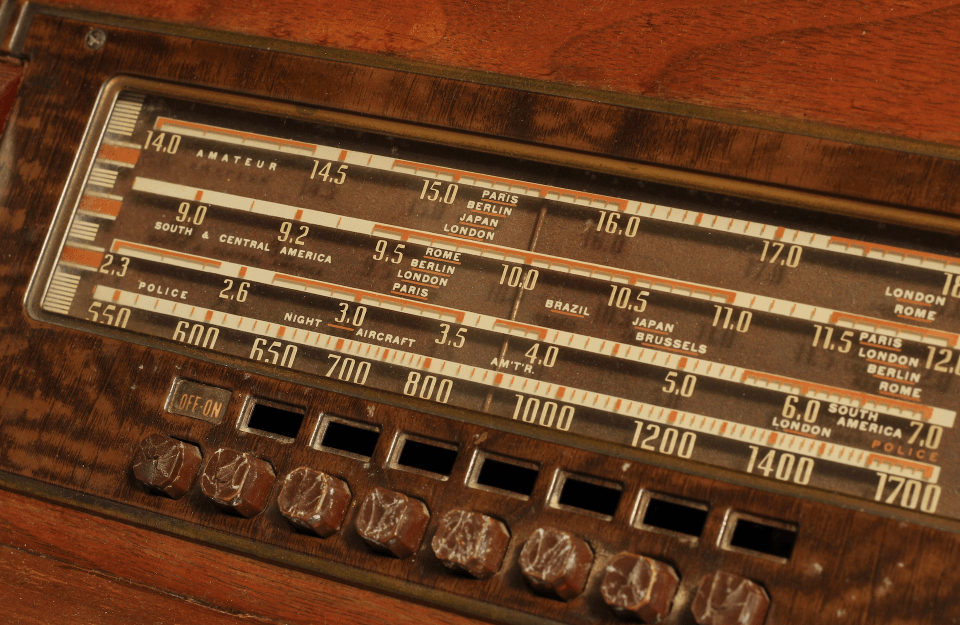The FBI’s Secret Impact on American Broadcasting
A study of declassified FBI files documents how the Bureau wielded the fear of communist infiltration to infiltrate the broadcasting industry itself.

Television directors. Advertising executives. Union members. These were some of the informants the Federal Bureau of Investigation (FBI) had on their payroll in the 1940s in order to investigate what they called the communist infiltration of radio and television, declassified documents show.
The investigation, called COMINFIL Radio-TV, came about at a critical moment in broadcasting history — at the time that television was being developed. While much has been written about corporate influence during this period in history, a new paper addresses a crucial gap in Cold War media historiography by analyzing over 5,000 declassified FBI files in order to reveal how the U.S. government’s intelligence activities altered the course of broadcasting.
The paper, co-authored by Lauren Tokos, an Annenberg School for Communication at the University of Pennsylvania doctoral student, looks at two aspects of the COMINFIL program: its surveillance of unions like the American Federation of Radio Artists (AFRA) over fears of communist infiltration, and its concern about communist propaganda being spread through American airwaves.
“This project offers an important contribution to research on the history and political economy of post-war communication by outlining how government surveillance crept into the fabric of America’s early media system, dampening dissent and demonstrating the connection between state and business interests,” said Tokos.
The Infiltration of the American Federation of Radio Artists
Although AFRA carried a reputation for communist ties, it was never a unified ideological front. From its inception, the organization was politically fractured, with internal divisions among liberals, centrists, and conservatives becoming even more pronounced during the post–World War II television boom. Infighting was frequent and intense.
According to the researchers, the FBI sought to deepen these internal rifts to shift the balance of power toward conservative factions. They did so by supplying intelligence on tensions between so-called “communist sympathizers” and conservatives within AFRA.
The released documents also reveal how the FBI exerted control over AFRA by pressuring networks to dismiss progressive and radical workers, compiling blacklists, and using anti-communist rhetoric as a weapon against union members.
Surveillance and Censorship of Broadcasting
The FBI’s targeting of AFRA was part of a larger effort to assert control over television, with the intent of “censoring criticism at its source.” Critiques of issues like commercialization, racism, and xenophobia were, according to the FBI, aligned with the Communist Party’s agenda.
This suspicion extended even to foreign language programming. The authors detail how Yiddish-language broadcasts, in particular, were flagged as subversive. The FBI viewed ties between Jewish communities, broadcasters, and unions as evidence that foreign language media signaled communist infiltration.
According to the paper, these surveillance efforts were “part of a broader effort to curate ‘Americanness’ on air and define what constituted ‘public interest’ in broadcasting,” with a particular aim “to favor English-only expression of American identity.”
This was all done under the guise of “protecting public airwaves from communist infiltration,” the declassified documents show.
How Declassified is Declassified?
However, the story remains incomplete, as the FBI documents — obtained through a Freedom of Information Act request — are still heavily redacted, with entire passages removed and the names of confidential informants blacked out.
“While these declassified documents reveal a lot about the FBI’s impact on media, the full extent of this history remains unfinished. More research is needed to understand the true nature of these investigations and others which contributed so deeply to the ideological foundation of America’s media industries,” said Tokos.
The paper, titled “’The FBI has no politics’: COMINFIL radio-TV and the suppression of dissent,” was published in Communication, Culture and Critique and co-authored by Tokos, Carol A. Stabile, and Miriam Yousaf.



